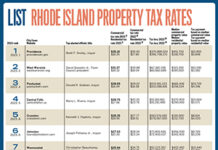The Federal Reserve raised interest rates again on May 3, by a quarter point, making it the Fed’s 10th rate hike since March 2022 in an ongoing fight to tame inflation. These rate hikes have been raising prospects of a recession amid heightened concerns about the fragile state of banks.
The rate hikes are also rattling sustainability-focused investing, better known as ESG investing.
The trend toward ESG investing, which puts pressure on companies to meet environmental, social and governance benchmarks, has almost redefined asset management over the past decade. ESG funds today are a multitrillion-dollar market.
However, the high uncertainty around interest rates, along with the prospects of a looming recession and a political backlash, has put the future of ESG investors at a crossroads.
My recent work has documented the impact that tough economic times can have on ESG investing demand. Investments into U.S. sustainable mutual funds have slowed since 2022, suffering their worst net flows in five years. There are critical factors looming that may affect investors’ zeal for socially conscious investing.
One of the primary arguments that big institutional investors make for ESG investing is that it creates long-term value for shareholders. Companies that pay careful attention to environmental, social and governance issues are believed to be better prepared for distant future risks.
However, heightened uncertainty about interest rates poses a challenge. That’s because higher rates can disproportionately affect the present value that investors assign to long-term investment outcomes. Let me explain.
Within the past year, the Federal Reserve has raised its benchmark lending rate from almost zero to a target range of 5% to 5.25% to combat inflation. In financial markets, higher interest rates lead to higher discount rates. That means that future cash generated by long-term investments is considered to be worth considerably less at today’s higher interest rates.
The more distant an asset’s value lies in the future, the more heavily it will be discounted in value when rates are high. So, long-duration investments – such as most ESG investments – are especially sensitive to changes in interest rates.
Another factor that could affect ESG investing is the potential for an economic downturn.
As research shows, investors do not necessarily make ESG investments for greater long-term returns, but often for altruistic reasons or due to personal preferences. For these ESG investors, a looming recession could change their perspective on these “luxuries.”
A recent study I conducted with an economist at the Rotterdam School of Management found that retail investors showed signs of shying away from investing in sustainable mutual funds during the early months of the COVID-19 shock in 2020. This was a period when many households experienced layoffs and furloughs, which likely pushed them to set aside luxuries to prioritize protecting the values of their 401(k)portfolios, IRAs and other investments.
In other words, investors may be all for ESG, except when times are tough.
Prominent economists have warned of a likely recession. The International Monetary Fund also lowered its global economic growth outlook from 3.4% in 2022 to 2.8% in 2023.
Due to high interest rate uncertainty, prospects of a recession and political upheaval, ESG is under pressure. The next few years will be its most important stress test yet.
Sehoon Kim is assistant professor of finance at the University of Florida. Distributed by The Associated Press.











